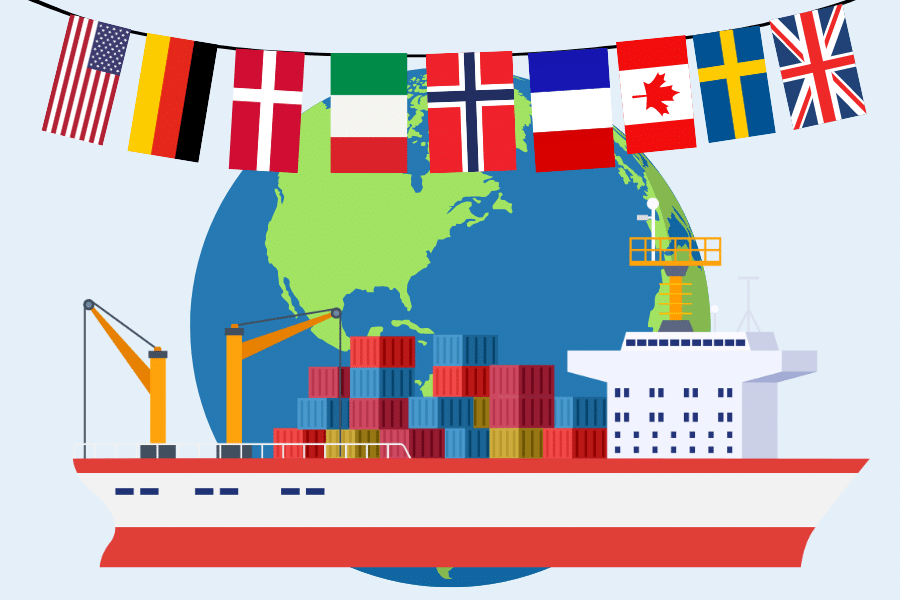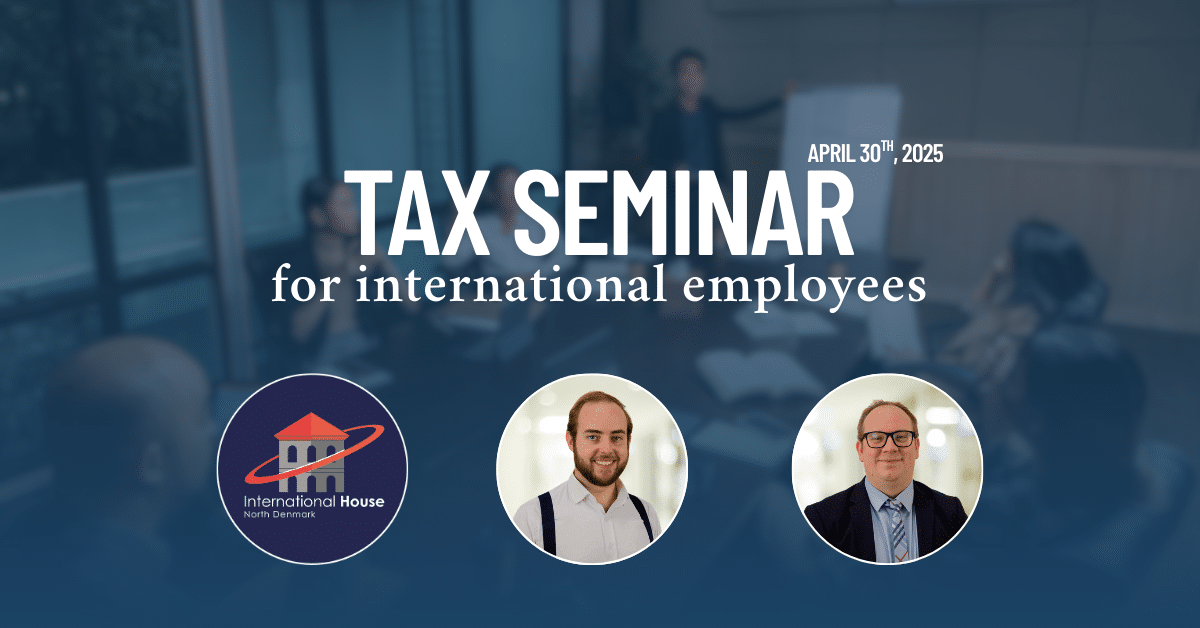Background: SKM2024.333.ØLR
The citizen worked as a chief officer on a Norwegian vessel owned by Island Offshore Management in 2016 and 2017. The vessel was engaged in activities related to oil extraction, including the construction and maintenance of equipment using unmanned submarines. As the chief officer, the citizen was responsible for ensuring ship stability during crane operations and overall onboard safety. The work was carried out in collaboration with Oceaneering Angola SA in BP’s operational areas in blocks 18 and 31 off the coast of Angola.
The citizen received wages of DKK 734,578 and DKK 668,401, initially taxed in Norway but later transferred to Denmark. The Danish Tax Authority argued that partial relief under section 33A(3) of the Danish Tax Assessment Act was appropriate, while the citizen advocated for full relief under section 33A(1).
According to Article 15(1) of the Nordic Double Tax Treaty, the wages should be taxed in Denmark. Since the vessel was not engaged in international traffic, the exception in Article 15(3) did not apply. Consequently, the Tax Authority contended that partial relief was warranted.
However, the citizen maintained that work performed outside the Nordic countries should qualify for full relief under section 33A(1) of the Danish Tax Assessment Act. Article 15(1) of the Nordic Double Tax Treaty, in their view, only regulated income from work within the Nordic countries, making the work in Angola exempt.
The High Court ruled that Denmark had the right to tax the income under Article 15(1) of the Nordic Double Tax Treaty due to the vessel’s lack of engagement in international traffic. Consequently, the citizen was entitled only to partial tax relief. This case underscores the importance of understanding specific provisions in international tax treaties and their practical application.
What is International Traffic?
The term ‘international traffic’ typically refers to transport between different countries. However, in this case, the vessel operated solely off the coast of Angola, which meant it was not considered to be in international traffic. Consequently, the exception in Article 15(3) did not apply, and Denmark retained the taxing right.

Taxation of Wages in the Nordic Double Tax Treaty
Article 15 of the Nordic Double Tax Treaty covers the taxation of wages from personal work. It’s divided into several sections:
- General Rule (Section 1):
Wages are typically taxed in the country of residence unless the work is performed in another contracting state. - Limited Taxation (Section 2):
Wages are only taxed in the country of residence if the work stay in the other country doesn’t exceed 183 days within a 12-month period. Additionally, the wages must be paid by an employer outside the work country, and they shouldn’t be attributed to a permanent establishment in that country. - Vessel Work (Section 3):
Income from work on vessels engaged in international traffic is taxed in the vessel’s home country. - Aircraft and Other Vessels (Section 4):
Income from work on aircraft and specific vessels is taxed in the country of residence.
Now, let’s look at the requirements under Section 33A of the Danish Tax Assessment Act:
- Full Exemption Relief (Section 1):
If a person stays outside Denmark for at least six months without significant interruptions (maximum 42 days in Denmark within a six-month period), they qualify for full relief. - Partial Relief (Section 3):
Even if a double tax treaty allows Denmark to tax the income, only partial relief is granted. This applies regardless of whether the person meets the time requirements of Section 1.
Insights from the Court Judgment
The recent court ruling sheds light on the intricate relationship between double tax treaties and Section 33A of the Danish Tax Assessment Act. Understanding this connection is crucial for ensuring accurate tax relief. Here are key takeaways from the case:
Double Tax Treaties and Section 33A:
The ruling emphasizes how double taxation treaties directly impact Section 33A. Even if a taxpayer qualifies for full relief under Section 33A(1), a double tax treaty assigning taxing rights to Denmark can reduce relief to partial under Section 33A(3).Interpreting Tax Treaties:
The court’s interpretation of terms like “international traffic” and the application of Article 15 reveals the complexities in understanding tax treaties. This has significant implications for individuals working abroad, especially if assumed tax liability and rights are challenged.Navigating Treaty Uncertainties:
The case underscores uncertainties in determining which double taxation treaties apply when interpreting Section 33A. Different treaties have varying provisions, so understanding their specifics and how they align with Danish law is essential.Seek Professional Advice:
Given the financial stakes, companies dealing with international tax matters should seek professional guidance. Misinterpreting treaties and domestic laws can lead to unfavorable tax outcomes. Incorrectly applying double tax treaties in overseas projects may result in added expenses and losses.
Simplifying International Tax with The Crossbord Solution
Navigating the intricate world of international tax can be daunting for companies with employees working abroad. That’s where The Crossbord Solution comes in. Our comprehensive service ensures your company adheres to all relevant regulations, while also minimising your employees’ tax liabilities.
What We Offer:
- Guidance on Double Taxation Agreements:
We help you understand and correctly apply complex tax agreements to prevent double taxation. - Tax Planning:
Our strategies for tax optimisation take into account both Danish and foreign tax laws. - Compliance Services:
We make sure your company fulfils all tax obligations in the relevant countries. - Payroll Reporting and Taxation:
We provide accurate payroll reporting and taxation services for your overseas employees.
By choosing The Crossbord Solution, your company can confidently navigate the complexities of international tax, reduce tax burdens, and ensure compliance. Get in touch with us today to find out how we can help your company optimise its tax conditions and facilitate smooth international operations. Leave the tax challenges to us, so you can concentrate on expanding your business.
This article has shed light on the potential international tax challenges companies may encounter, using a specific court case as an example. It also underscores how The Crossbord Solution can offer effective remedies. With our expertise and commitment, we stand ready to guide your company through the labyrinth of international tax.








